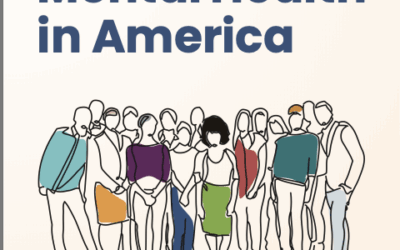After months of negotiations, Virginia finally has a state budget for the two-year period that begins July 1, 2022. It contains the largest increase in mental health funding across the system, with significant investments in the two most vital needs – growing the behavioral health workforce and a continuum of care in local communities. Both will help address the current crisis facing people unable to find treatment.
Many of the budget amendments we supported were approved, thanks to American Recovery Act Funds, a massive state surplus, and strong advocacy for mental health both within and outside the legislature.
Unfortunately, the budget missed a precious opportunity to truly transform a broken system. Virginia’s funding for community mental health has lagged so far behind, for so long, that even this major increase will not bring us out of crisis fast enough. The challenge now is to realize the job isn’t done. We need to sustain the collective will to improve mental health, expand pilot projects statewide and fill the remaining gaps during the next legislative session.
For details on the approved budget items, see the Senate Finance presentation to the Behavioral Health Commission here Overview of Behavioral Health Funding HB 29 and HB 30 and the Department of Behavioral Health overview here 2022 General Assembly Conference Summary of Actions.
A few highlights:
• Full funding for STEP Virginia to finish the multi-year plan to expand our local public mental health system,
• More Permanent Supportive Housing units to relieve the backlog in state hospital discharges,
• Increases in Medicaid insurance payment rates to attract more service providers, including Peer Recovery Specialists,
• A few Regional Crisis Receiving Centers to serve individuals in short term community facilities and free up hospital beds.
• 10 more psychiatric residency slots, nursing scholarships and paid clinical supervision to shore up our disappearing behavioral health workforce.
• New behavioral health positions for every local and regional jail.
School-Based Mental Health Integration Pilot – Puts in $2.5 million for a pilot, reduced from the proposed $10 million each year, for the state to provide grants to school divisions to contract for community–based mental health services for students, from either public or private community-based providers. This gives flexibility for schools to meet student needs that are beyond the scope of school personnel. The pilot program will report back with their results.
Increase Rates for Psychiatric Residential Treatment Facilities – sets a new minimum and maximum per day payment rate for psychiatric residential treatment facilities. The goal is to avoid hospitalization for children, and allow the vast majority of Virginia children to be placed with in-state providers, instead of being sent out of state due to cost limitations. The final amount is an improvement but still not what is needed to avoid out-of-state placements.
Continuation of 12.5 % Medicaid Payment Rate Increase for Most Home and Community Based Services –Continues the temporary 12.5% increase made in 2021 for most Medicaid home and community based providers
Medicaid Peer and Family Support Rate Increase – Doubles the Medicaid payment rates for certified peer recovery and family support services. Current rates are so low that few, if any, community services boards can afford to bill for reimbursement for these services.
Increase the Mental Health Workforce Pipeline –$3 million for a mental health workforce pilot at colleges in Virginia to fund costs of clinical supervision for masters level students in social work and counseling to get licensed. It also expands mental health services to students on campus. The Virginia Health Care Foundation will consult with the State Council on Higher Education to implement the pilot.
Add 10 Psychiatric Residency Slots – Adds a total of $1.2 million each year to fund new psychiatric residency slots using Medicaid supplemental payments.
Behavioral Health Loan Repayment Program (language only) – Expands eligibility for the loan forgiveness program sites to include stand-alone inpatient psychiatric facilities that serve uninsured or underserved communities.
Forensic Discharge Planning (language only) – Allows more jails and community services boards to provide discharge planning for individuals with a serious mental illness prior to release from jail. Funding “may also be used for emergency client assistance resources.”
Local and Regional Jails – Provides 125 new behavioral health case manager positions across every local and regional jail, as well as 127 partially-funded medical and treatment positions in each year to be allocated according to Compensation Board staffing standards, effective August 1, 2022.
Virginia drops from 12th to 22nd in the 2025 State of Mental Health in America Report
Written by: Kiersten ‘KiKi’ Szymecki, MSW Policy Intern Mental Health America (MHA) has shared its findings in the...



